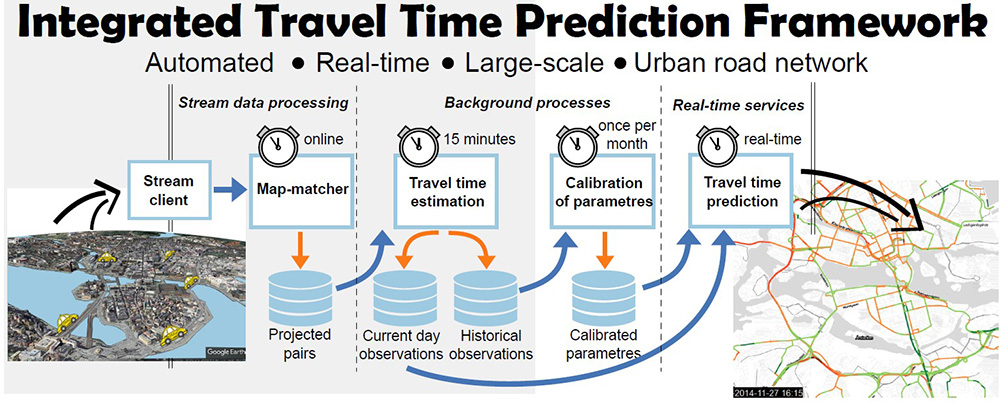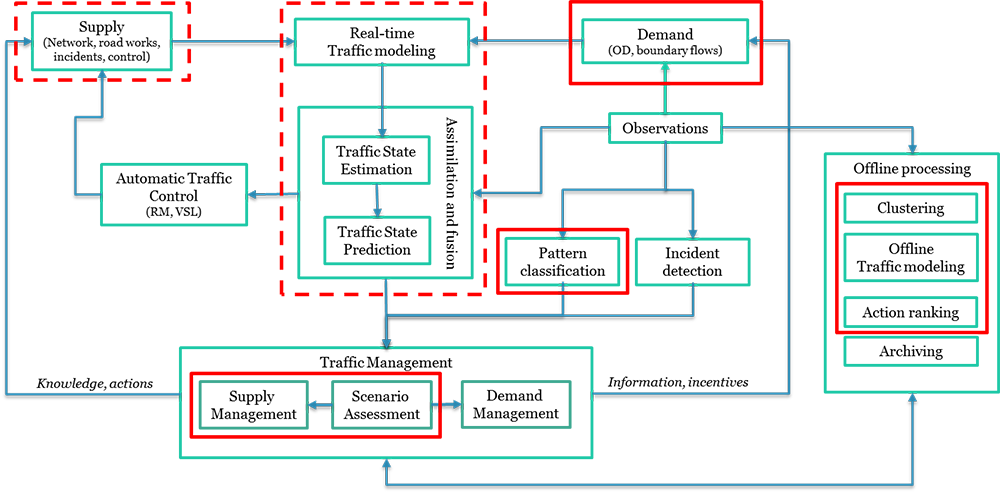Prediction and scenario-based traffic management (POST)

"Prediction and scenario-based traffic management (POST)" is a collaboration between the Swedish Transport Administration, Linköping University and KTH Royal Institute of Technology. The project is based on the Mobile Millennium system, originally developed by UC Berkeley, and further developed within the framework of the Mobile Millennium Stockholm project (MMS). The system has been implemented and adapted to the conditions in Stockholm, and new algorithms have been implemented and further developed to significantly improve the estimates of the main streets and motorways in Stockholm. Data fusion and filtering methods have been developed to enable the use of additional data sources such as travel time cameras, Bluetooth and taxi positions. A calibration framework has been developed, allowing for consistent parameter estimation for the traffic model. The validation results show good performance of both the motorway and city network model with respect to MCS sensor data, GPS data and travel time camera data. At the same time, an implementation project has provided resources to initiate technology transfer of the algorithms developed in the project to Trafik Stockholm. A new network model has been developed based on the NVDB network and visualization features have been created to support traffic management at Trafik Stockholm.
The main focus of the current phase of POST is to integrate the results of previous MMS projects with the projects "Calibration of DTA Models", "Enhanced tunnel closures", and the ongoing "Motorway Control Strategies" project to build a scenario for traffic management scenario evaluation. By combining model-based scenario evaluation and optimization with improved short-term predictions, we can help traffic management at Traffic Stockholm to develop proactive strategies. In POST, the greatest efforts have been made so far on the following components:
- Clustering traffic data to understand traffic patterns in the Stockholm network
- Classification of clusters to determine the type of day
- Basic OD estimation for type days
- Scenario evaluation for type days with macroscopic traffic model

Period: 2017-01-01 – 2018-12-31
Funder: Swedish Transport Administration through CTR
Project leader: Wilco Burghout
Participants: Matej Cebecauer , Erik Jenelius , and Linköping University, VTI

